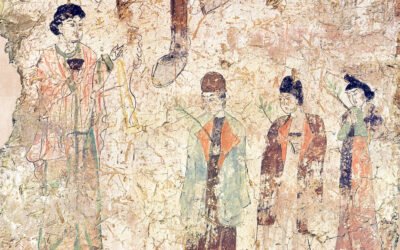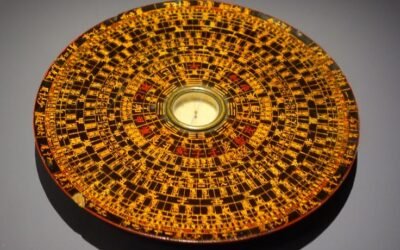The crime really happened. But it was perpetrated by a religious movement different from The Church of Almighty God.
by Massimo Introvigne
Article 3 of 6. Read article 1 and article 2.

On May 28, 2014, one of the most horrific murders in the story of new religious movements was perpetrated in a McDonald’s restaurant in Zhaoyuan, in the Chinese province of Shandong. Six “missionaries” entered the restaurant preaching their religion and asked clients to leave their phone numbers for further contact. Wu Shuoyan, a sales assistant working in a nearby clothing store, refused to give her number. She was declared an “evil spirit” and beaten to death with a mop handle.
Chinese police and media quickly attributed the murder to The Church of Almighty God, although as we mentioned earlier and will now examine in detail this version was later debunked by Chinese journalists themselves. As evidence for the accusation, Chinese media reported that, one day after the murder, the police claimed to have found material of the CAG in the home of the main defendant, Zhang Lidong, including the book “The Scroll Opened by the Lamb.” After another two days, an interview with Zhang was aired on CCTV, China’s state television. He stated that he was jobless and that he had killed Wu because she was an “evil spirit.” Asked what his religion was, Zhang answered, “Almighty God.”
The CAG insisted that its literature was probably planted in Zhang’s home by the police, but the question does not appear to be crucial. Millions of pieces of CAG literature have been distributed in China, some of them, as Emily Dunn reported in her book previously discussed in this series, even left “in public locations such as train stations for passers-by to discover.” Thus possession of this literature does not prove that one is a member of the CAG.
There are four Chinese terms the McDonald assassins used for “evil spirit”: 邪灵 (evil spirit), 恶灵 (wicked spirit), 恶魔 (demon), and 魔鬼 (devil). They apparently used them as synonymous; at least, from their interviews and declarations at the trial it is unclear whether they made a difference between different categories of “evil spirits.” By contrast, the term 恶灵 (wicked spirit), which the group used often, never appears in the vast literature of the CAG, where there are very specific rules for discerning the presence of 邪灵 (evil spirits). Although the CAG, not unlike many other Christian religions, does believe in the existence of evil spirits, it is alien to CAG theology and practice to identify an evil spirit by sight as well as to determine that an evil spirit (or “wicked spirit”) must be killed because of its refusal to give out its telephone number.

The group responsible for the McDonald’s murder went to trial on August 21, 2014, before the Intermediate People’s Court of Yantai, in Shandong province. Chinese media reported quite extensively the statements and confessions by the defendants. From there a story emerged that supported Dunn’s conclusion that none of those who entered the McDonald’s and were responsible for the crime was, at the time of the murder, a member of the CAG. They were part of a different group, which has never had more than thirty members and which is known only via its connection with the crime.
Although Dunn believes that some of the assassins, although no longer associated with the CAG at the time of the murder, may once have been part of it, I am not persuaded that they were ever members of that church. Zhang Fan explicitly stated, “I never had contact with the Church of Almighty God because they were very secretive, and I could not find them.”
Not a lot is known of the group that was responsible for the Zhaoyuan crime. Most information comes from Chinese government sources and should be approached with caution. However, the main facts are supported by the defendants’ statements during the trial, video interviews granted to Chinese media, and the “Beijing News” investigation I already mentioned in this series.
The most relevant characters within the group are the Zhang family from Shijiazhuang, in the province of Hebei, and Lü Yingchun, a young woman who was born in Yantai City, Shandong, on March 8, 1975. Zhang Lidong was born on October 8, 1959, in Shijiazhuang. He married Chen Xiujuan, and the couple had three children: two daughters, Zhang Fan, born on October 24, 1984, and Zhang Hang, born on March 1, 1996, and a son, Zhang Duo, born on September 12, 2001.
Although she later quarreled with her husband, who had in the meantime acquired a lover, Zhang Qiaolian (born on August 23, 1990), Chen had a relevant part in the genesis of the group’s religious interests. She was a member of the Mentuhui, or Association of Disciples, a new religious movement founded by Ji Sanbao in Shaanxi in 1989. Ji, who had been a preacher for the Pentecostal Sabbatarian denomination known as the True Jesus Church, presented himself as “God’s stand-in” (shen de tishen) and the center of the Third Redemption.
Lü Yingchun stated at trial, “I grew up knowing that I was ‘God Himself.’ In 1998, I read the word ‘firstborn son’ in a book concerning ‘Almighty God.’ I was convinced that I was the ‘firstborn son’ myself… Finally, I discovered that I was ‘God Himself.’”
“Firstborn son” is a title used in the New Testament for Jesus Christ (see Hebrews 1:6; Revelation 1:5). The book Lü refers to may or may not have emanated from the CAG, but certainly in that church there is no God living today on Earth other than the only one they identify as such. Starting in the early 2000s, Lü led a study group in Zhaoyuan. She also spread her messianic claims via the internet.

Zhang Fan confessed that in 2007 she “picked up a copy of the book of ‘Almighty God’ at our doorstep” and found it persuasive. In an interview she said that the book was called “God’s Hidden Work”(神隐秘的做功). It was possibly a pirated or imitated version of “The Hidden Work Done by God”(神隐秘的作工), published by the CAG, unless she simply misquoted the title. She did develop an interest in the CAG but, as mentioned earlier, never managed to contact the organization.
Zhang Fan’s conversion came when she started following Lü on the internet and found her answers to those criticizing her “terrific.” She then traveled to Zhaoyuan to hear Lü preaching. Enthusiastic about Lü, in the summer of 2009 she converted her mother and, through her, her whole family, including her father, her sister, and her eight-year old brother. Eventually the whole Zhang family moved to Zhaoyuan, where they rented a two-story building. One story hosted the family textile business and the other the religious gatherings.
Before moving to Zhaoyuan, and after she was admitted in 2002 as a student to the Beijing Broadcasting Institute (renamed in 2004 the Communication University of China), where she would graduate in 2008, Zhang Fan read a book called “The Seven Thunders’ Sound”(七雷发声; the title refers to the seven thunders or voices describing judgments to come upon the earth in Revelation 10). In Zhaoyuan she found out that the book, which Lü may also have read, had been written by a couple from Baotou, Inner Mongolia: Li Youwang and Fan Bin. At that time Li and Fan were in prison. Zhang Fan borrowed RMB 50,000 from her mother and send them to Baotou so that, upon their release from jail, Li and Fan could move to Zhaoyuan and stay with the Zhang family. According to the investigation by “Beijing News” reporters Xiao and Zhang, Li and Fan “were addressed as ‘the two witnesses’ [from Revelation 11:3–12] and Lü Yingchun and Zhang Fan were called ‘the firstborn sons’” by a group that at that time consisted of twenty to thirty believers. Another person, Fan Longfeng, became part of the group’s inner circle, and in 2010 Lü started living with Zhang Fan.
Some believe that the reference to the “seven thunders” in the apocalyptic visions of Revelation 10:1–7 may indicate a connection with the CAG, but the latter is obviously not the only group with an interest in the Book of Revelation and its symbols, and neither the book nor the authors are mentioned in any of the numerous church bibliographies and websites. In fact, “Voices of the Seven Thunders” was the name of a website created in order to criticize the CAG, claiming that all of Almighty God’s utterances published after 1997 were false. Whether this site had any connection with the book by Li and Fan is unclear. It seems safer to conclude that they operated yet another independent group, although boundaries between different religious movements in the peculiar Chinese situation of persecution and clandestine operations are somewhat porous.
In 2011, however, Zhang Fan pronounced Li Youwang an “evil spirit” (邪灵), and he and his wife left the group in Zhaoyuan and moved to Dongying, Shandong. Fan Longfeng was also identified as an “evil spirit” (邪灵) and expelled from the group, as the “Beijing News” investigation reported. With the Li and Fan couple out of the picture, Lü Yingchun and Zhang Fan were free to reveal gradually that they were both the Two Witnesses of the Book of Revelation and a dual God, although full disclosure to their small group might have come only in May 2014.
In the end, as is the case in other Chinese new religions, the core belief of the group was the messianic role of the duo Lü Yingchun and Zhang Fan. The frequent references to the Book of Revelation implied that apocalyptic times were coming, with a final confrontation between good and evil. Only those who accepted the divine role of the two young women, “two fleshy bodies sharing a same soul,” would be saved. That we live in the last days, Lü explained, was confirmed by the fact that today “people would become ‘Satan’s’ minions unwittingly when they did not understand the situation and would not stand on the side of God. Once that happened, we would be under even greater attack by the ‘devil’ [魔鬼] during the battle between two spirits.”

The messianic role of the duo was exclusive, in opposition to the doctrine of the CAG, which admits only a singular Almighty God. At trial Lü clearly explained, “Only Zhang Fan and I, the ‘firstborn sons,’ could represent the real ‘Church of Almighty God.’ Zhang Fan and I are the unique spokeswomen for the real ‘Almighty God.’ The government has been cracking down on the Almighty God that Zhao Weishan [the administrative leader of the CAG, where he is known as the ‘Man Used by the Holy Spirit’] believes in, not the ‘Almighty God’ we mention. They are fake ‘Almighty God,’ while we are the real ‘Almighty God.’”
Zhang Fan added, “Up till now, only my father, my younger brother, my younger sister, Lü Yingchun, Zhang Qiaolian and I are adherents of the real ‘Almighty God.’ In 2010, I was the ‘firstborn son’ of ‘Almighty God.’ I became ‘God Himself ’ because I obtained the authority from the Heaven to kill evil spirits [邪灵] this May. Speaking of ‘God Himself,’ that is to say, I am God in substance. Lü Yingchun is also God in substance.”
Some Christian critics of the CAG have argued that it was in the defendants’ interest to downplay any relations with the banned CAG during the trial, given the Chinese courts’ hostility to that church. However, had they adopted a conscious defensive strategy (which they probably didn’t), defendants could have claimed that they were not totally responsible of their deeds since they had been manipulated by the CAG. That may have served them better in trying to escape the death penalty for their most serious crime, homicide.

Massimo Introvigne (born June 14, 1955 in Rome) is an Italian sociologist of religions. He is the founder and managing director of the Center for Studies on New Religions (CESNUR), an international network of scholars who study new religious movements. Introvigne is the author of some 70 books and more than 100 articles in the field of sociology of religion. He was the main author of the Enciclopedia delle religioni in Italia (Encyclopedia of Religions in Italy). He is a member of the editorial board for the Interdisciplinary Journal of Research on Religion and of the executive board of University of California Press’ Nova Religio. From January 5 to December 31, 2011, he has served as the “Representative on combating racism, xenophobia and discrimination, with a special focus on discrimination against Christians and members of other religions” of the Organization for Security and Co-operation in Europe (OSCE). From 2012 to 2015 he served as chairperson of the Observatory of Religious Liberty, instituted by the Italian Ministry of Foreign Affairs in order to monitor problems of religious liberty on a worldwide scale.



